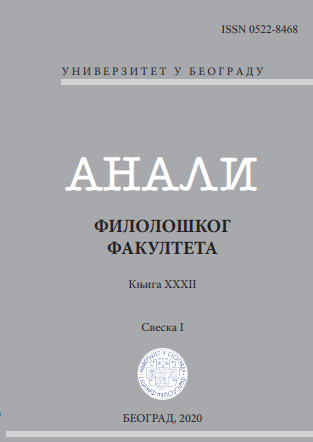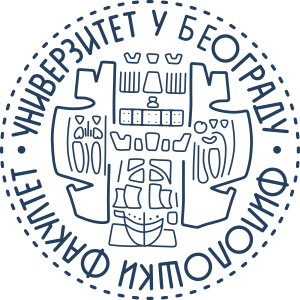The Importance of Language Learning Strategies in Foreign Language Acquisition
DOI:
https://doi.org/10.18485/analiff.2020.32.1.13Кључне речи:
language learning strategies, English proficiency, higher education, strategy preferences, strategy instructionАпстракт
The paper reports the results of a study on language learning strategy preferences of higher-education students. It is motivated by an ever lower level of English proficiency although most of students have been studying English since the first grade of primary education. The translated version of the SILL questionnaire was used (Oxford, 1990), with several personal background questions added for the purpose of clarifying the results. The data were analysed using the SPSS software. The results show either low or medium strategy utilisation per category, social strategies being most frequently used, followed by compensation, metacognitive and cognitive ones, whereas affective and memory strategies were the least favoured. Average and high-proficiency students use a vast majority of strategies more often than low-proficiency ones. However, affective and memory strategies are most often employed by the least successful students. The comparison between male and female students’ strategy utilisation shows that the former use four categories of strategies more often than the latter, who are more frequent users of social strategies only. However, T-test results reveal statistically significant gender differences in the use of only several individual strategies. The above-mentioned, together with the fact that more than half of the students belong to the low-proficiency group, indicates that the explicit strategy instruction would be beneficial to their English language acquisition.
Downloads
Downloads
Објављено
Број часописа
Рубрика
Лиценца

Овај рад је под Creative Commons Aуторство-Дели под истим условима 4.0 Интернационална лиценца.
Authors who publish with this journal agree to the following terms:
- Authors are confirming that they are the authors of the submitting article, which will be published (print and online) in the journal Anali filološkog fakulteta by the Faculty of Philology, University of Belgrade (Faculty of Philology, Studentski trg 3, 11000 Belgrade, Serbia). Author’s name will be evident in the printed article in the journal. All decisions regarding layout and distribution of the work are in hands of the publisher.
- Authors guarantee that the work is their own original creation and does not infringe any statutory or common-law copyright or any proprietary right of any third party. In case of claims by third parties, authors commit their self to defend the interests of the publisher, and shall cover any potential costs.
- Authors retain copyright and grant the journal right of first publication with the work simultaneously licensed under a Creative Commons Attribution-ShareAlike 4.0 International License that allows others to share the work with an acknowledgement of the work's authorship and initial publication in this journal.
- Authors are able to enter into separate, additional contractual arrangements for the non-exclusive distribution of the journal's published version of the work (e.g., post it to an institutional repository or publish it in a book), with an acknowledgement of its initial publication in this journal.
- Authors are permitted and encouraged to post their work online (e.g., in institutional repositories or on their website) prior to and during the submission process, as it can lead to productive exchanges, as well as earlier and greater citation of published work.





